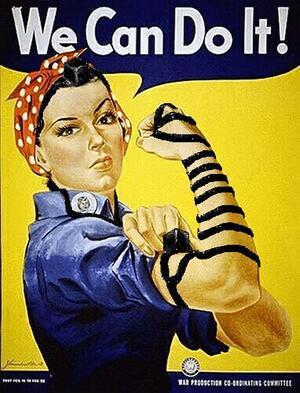JOFA: Beyond Belief - Part 2
In her final interview before leaving JOFA, Elana Sztokman talks about Orthodox feminism and JOFA. This is the second part of our three-part series, posting weekly. Read part one here.
Susan Reimer-Torn: Some of JOFA’s early financing came from progressive Jewish groups and some non-Orthodox women. Why do you think they were persuaded to contribute? How important is this alliance?
Elana Sztokman: The alliance between Jewish feminists from different denominations is so important. It’s vital for us all to recognize that we’re on the same journey of working to build a Jewish life that is both loyal to our traditions and committed to values of inclusion, compassion, justice and equality. We may end up in different places and with different solutions—one prays with a partition and one doesn’t; one has women rabbis and one has women as Maharats—but those differences are much less significant than our shared values. We need to support one another in our struggles, because our real strength comes from this kind of collegiality and collaboration.
I would add that this kind of collaboration is an approach that women bring to the table. One of the most embarrassing aspects of Orthodox life is when we watch our leaders aggressively delegitimize those who are perceived as “outside” Orthodoxy—whether those are Reform rabbis or Orthodox rabbis who express controversial opinions. There is a particularly Orthodox obsession with marking that kind of inside/outside territory, an obsession that is incredibly damaging to our spiritual life. The need to mark someone else as “out” wastes energies and resources and sends an awful message about what it means to be part of the Jewish people.
So from my perspective, a crucial component of the Orthodox feminist agenda is to challenge this obsessive Orthodox demarcation of difference. If Orthodox feminists sit at the table with Conservative feminists and secular Jewish feminists, we’re not going to get cooties. We’re not going to lose our identity as Orthodox and we’re not going to suddenly decide to “convert.” We can have these conversations and fully retain our identities. So this is the feminist message: collaboration. Only good can come from working together on shared goals and values.






